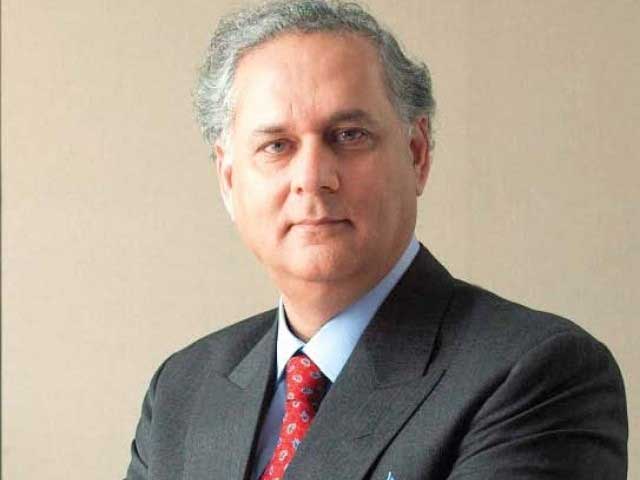Zafar addami uz ko na janniyeagaa vo ho kaisaa hi saahab-e-fahm -o-zaka,
Jise aeish mein yaad-e-khuda na rahii,jise taish mein khauf-e-khuda na rahaa.
-(Bahadur Shah Zafar- 1775- 1862)
Perhaps it is only the foolish who wish to conquer the world, while the wise strive to conquer their own selves.
I was introduced to the cited Urdu verse of Bahadur Shah Zafar, the last Mughal Emperor (1775-1862), by my father, who, being a voracious reader himself, dutifully scanned all the books I purchased. As was his habit, he would make notes in the margins, advising me not to waste my time on certain chapters or books. On the Diwan of Sirajuddin Bahadur Shah Zafar, he wrote, “Son, the compiler of this anthology of Zafar’s verses has failed to include the most beautifully crafted and highly philosophical couplet of the poet-king,” and he inscribed the cited verse on the book itself.
After reading the verse intensely and reflecting upon it, I realised it is a reservoir of principles for human resource management and contains the highest ideals of human behaviour and interaction-an abridged philosophy of life.
Rumi says: “Patience is not sitting and waiting; it is foreseeing. It is looking at the thorn and seeing the rose, looking at the night and seeing the day. Lovers are patient and know that the moon needs time to become full.” This definition of patience inspires a development of thought wherein the leader or manager (the lover) recognises with forbearance that the colleague (the moon) shall take time to develop into a productive member of the team.
Managers who nurture young talent within an institution, demonstrate the importance of identifying, and developing a vast pool of potential. Such an investment in people simultaneously creates, for both the leader and the institution (or even a nation), an extremely loyal and committed workforce.
Returning to Bahadur Shah Zafar’s Urdu verse, I derive from it numerous lessons on managing resources, particularly human resources. To better understand my interpretation of the couplet, its loose translation in English would be:
“No man can be truly recognised as one, despite his apparent knowledge and wisdom, if he refuses to bow in gratitude during good times or forgets to remember divine retribution when in a state of anger.”
If a manager were to adopt this principle, it would imply that in dealing with errors by a colleague, their reaction should be bound within the confines of restrained anger and a refusal to exploit positional power. Instead, they should exercise patience, absorb the situation’s outcome, and then take corrective action. As Virginia Woolf aptly noted, “Where the mind is the biggest, the heart, the senses, magnanimity, kindliness, and the rest of them scarcely have room to breathe.”
Regrettably, most managers behave differently. In challenging situations, whether expected or unexpected, they tend to lose composure, often redirecting their frustration towards individuals rather than the issue. This shift marks the onset of the corporate blame game. In such cases, the institution, rather than the individuals involved, becomes the ultimate loser. Multiple small stumbles provide assurance against a major fall-a perspective leaders must keep in focus.
The most insidious form of anger is not overt aggression but the subtle, passive kind. This type of anger, with its long shelf life, is particularly harmful. Leaders who employ sarcasm, ridicule, or scorn are often victims of this passive anger. It grows within them like Jack’s beanstalk, consuming their emotional reserves. These leaders seize every opportunity for silent retaliation, which ultimately damages relationships and undermines team morale.
Patience, on the other hand, is vital. As the proverb goes, “A chicken is begotten by hatching the egg, not by smashing it.” While impatience in a leader is not necessarily negative-it often reflects a desire for progress-it must be tempered. A leader must stay ahead of the team but not so far ahead that they lose sight of those following. The gap between the leader and their team should be narrow enough to inspire, not demotivate.
Impatience often leads to frustration when desired outcomes are not achieved within the expected timeframe. At this tipping point, Bahadur Shah Zafar’s verse serves as a reminder: fear of divine retribution should govern one’s choice of words and actions towards errant teammates. Displeasure, when expressed, must be tempered with empathy. A leader should always ask themselves how they would feel in the other person’s position. Anger should never overpower the demands of grace and dignity.
After a fierce battle, King Rana Sanga was brought in chains before the Mughal Emperor Akbar, bearing 85 wounds. Seeing his defeated enemy, Akbar arrogantly asked how Rana Sanga expected to be treated. With regal composure, Rana Sanga replied, “Like a king.” Akbar, to his credit, upheld this request. This demonstrates that true grace is shown not by the powerless but by those in positions of strength.
There is a story, perhaps apocryphal, of Frederick the Great of Prussia encountering a man who ignored his royal presence. “Who do you think you are?” demanded Frederick. “I am a king,” replied the man. Astonished, Frederick asked, “Over what kingdom do you reign?” The man answered, “Over myself.” This profound response underscores the importance of self-mastery. Discipline and responsibility towards oneself and others can make emperors of us all.
As a Chinese proverb advises, “When you see a good man, think of imitating him; when you see a bad person, search your heart.” Holding back anger and celebrating success with gratitude are not mere virtues-they are achievements. -Courtesy: The Nation





